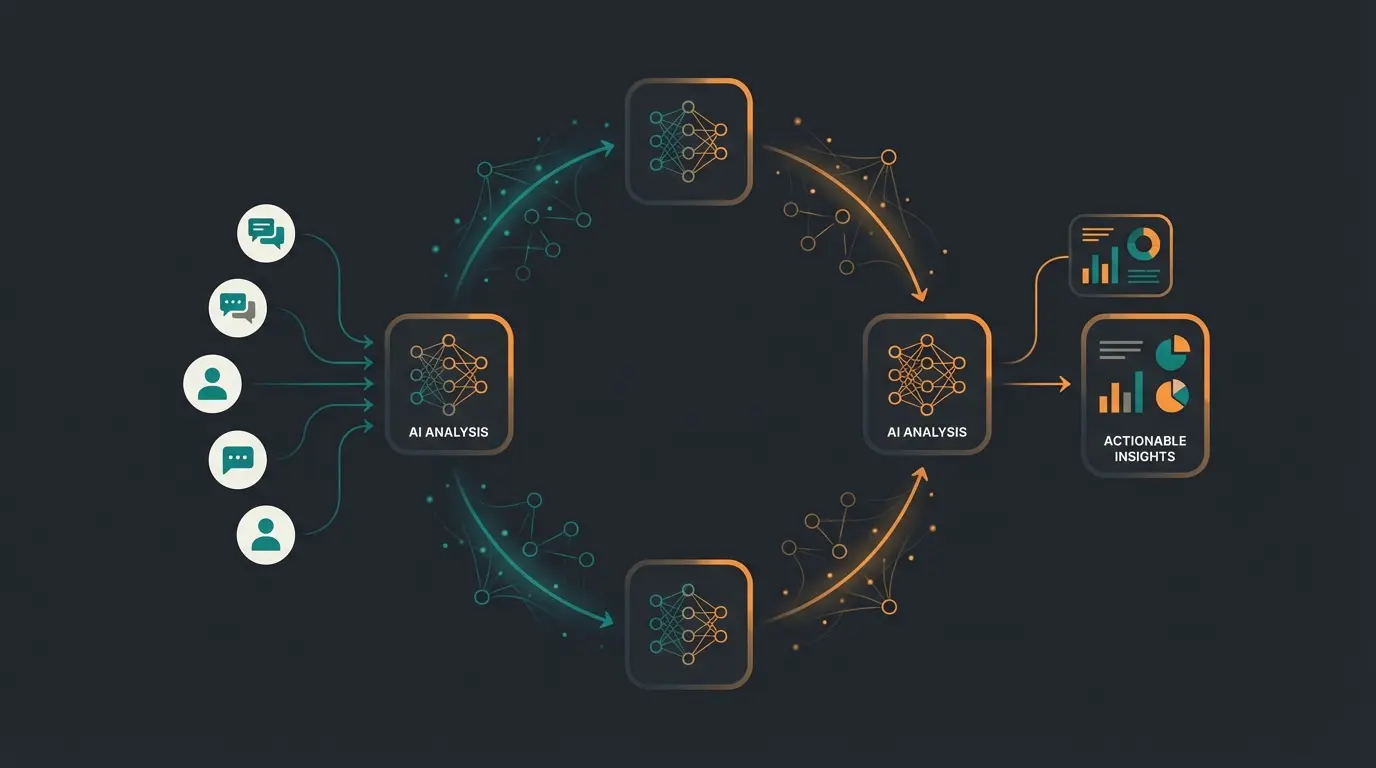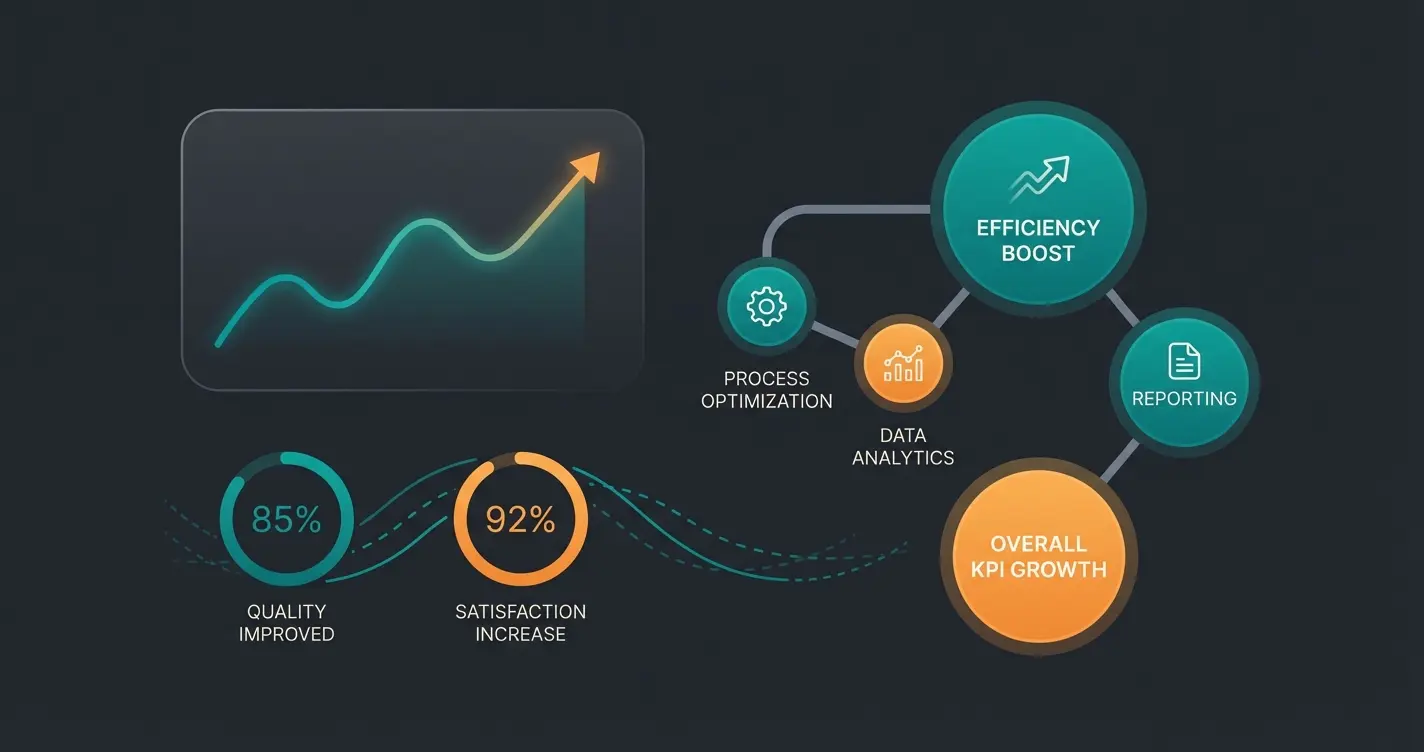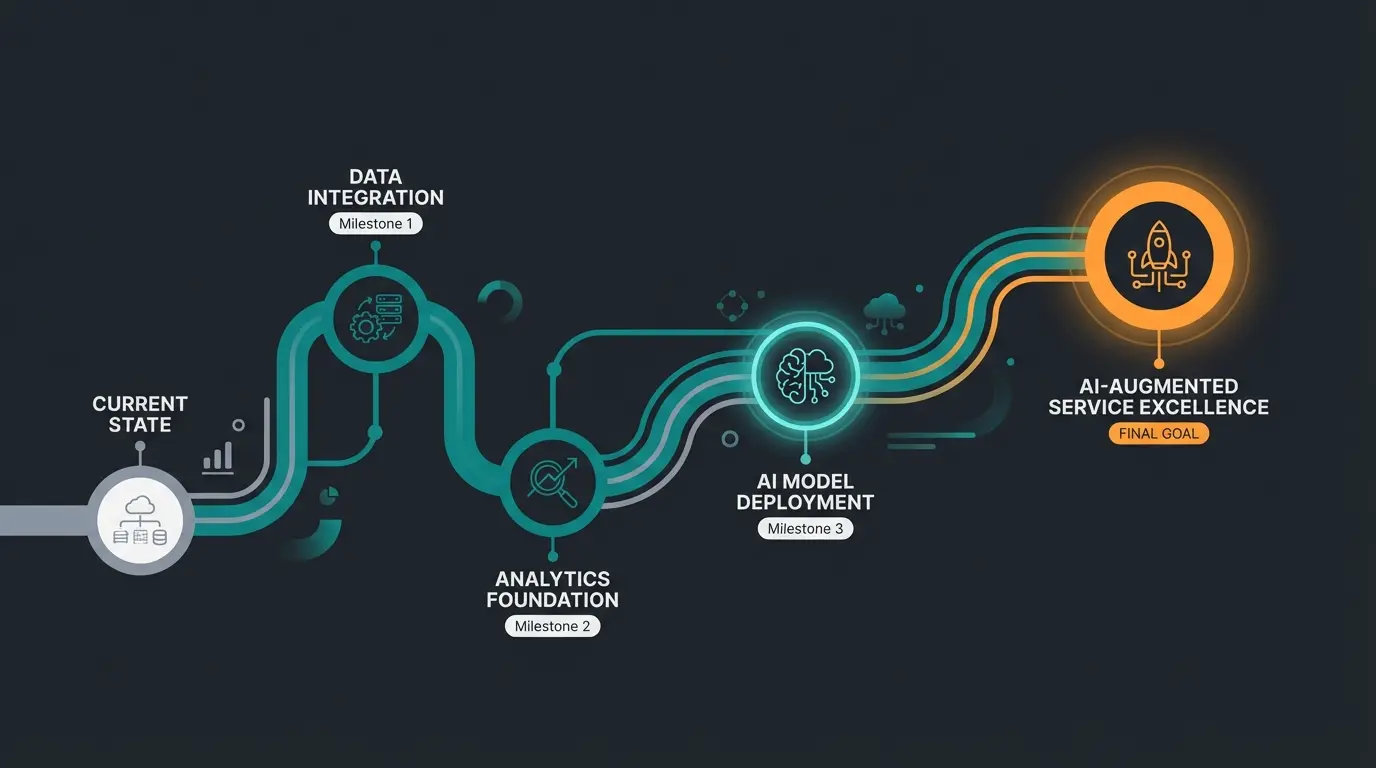Introduction: The Real Challenge of AI Training
The integration of AI systems is fundamentally shaping modern customer service. According to recent studies, 89% of companies already use AI solutions in customer service to optimize processes and increase customer satisfaction. This development requires targeted AI training for service employees—but here's the catch: booking a generic "ChatGPT seminar" is often a complete waste of budget.
Current AI developments from Forbes show a clear trend: By 2027, the AI market will grow to over $407 billion USD. Service employees must familiarize themselves with AI-powered systems to remain competitive and generate maximum customer value. But the question isn't whether to train—it's how to train effectively.
Professional AI training offers service employees numerous advantages: It increases efficiency in routine tasks, enables more precise customer analysis, and improves consultation quality. Employees learn to use AI tools strategically and optimally combine their personal strengths with technical capabilities. However, the current landscape of AI training providers misses a critical point: they teach the container, not the content that matters for your business.
The Status Quo: What Current AI Training Covers
The current search results for "AI training" are dominated by transactional pages from traditional institutes like TÜV, IHK, Fraunhofer, and Haufe Akademie. They all cover similar ground: basics of AI, legal aspects including the AI Act, data literacy, and prompt engineering. This is table stakes—necessary but insufficient.
What Traditional Training Programs Offer
Most established training providers follow a predictable pattern: they present a title, define a target audience, list key benefits in bullet points, outline detailed curriculum modules, and finish with dates, pricing, and an FAQ. The depth of actual educational content is remarkably low—they describe what you will learn without delivering the learning itself.
For customer service teams, this generic approach creates a significant problem. Learning how large language models work technically doesn't help a service agent assist a customer in choosing between two complex product configurations. Understanding prompt engineering in the abstract doesn't translate to real-time consultation scenarios.
The Critical Gap: Product Consultation Skills
Here's what virtually no training program addresses: how AI transforms support agents into product consultants. The entire industry focuses on efficiency (answering tickets faster) or generic empathy training. Very few discuss AI for product consultation—helping customers choose the right product in complex advisory scenarios. This is the blue ocean opportunity that most organizations are missing.
Already leveraging AI solutions in customer service
Projected AI market value according to Forbes
In standard request processing with proper AI implementation
Employee satisfaction increase with effective AI training
AI Fundamentals for Customer Service Teams
Core AI Technologies You Need to Understand
The AI technologies in the service sector encompass various systems: Natural Language Processing for text analysis, Machine Learning for adaptive learning processes, and Predictive Analytics for proactive customer care. These technologies form the foundation of modern service concepts. However, understanding them conceptually is different from knowing how to leverage them for customer consultation.
For service teams, the practical application matters more than technical depth. Your agents don't need to understand transformer architecture—they need to understand when the AI might be wrong, how to verify recommendations, and when to trust the system versus escalating to their own expertise.
Service Chatbots and How They Actually Work
Modern chatbots are based on neural networks and can understand customer inquiries contextually. They analyze keywords, recognize emotions, and select appropriate responses from their knowledge database. Integration into existing systems occurs through APIs and standardized interfaces.
But here's what matters for your training strategy: most courses teach ChatGPT generically. They don't discuss how to train staff on specialized industry AI tools versus general chatbots. There's a fundamental difference between prompting a general-purpose AI and working with a domain-aware product consultation engine that already understands your catalog.
Analysis and Forecasting Tools
AI-powered analysis tools capture customer behavior, identify patterns, and create precise forecasts. These insights enable proactive service measures and personalized customer engagement. The integration into service workflows optimizes operations and increases the efficiency of customer service teams.
Systematic training on these fundamentals enables service employees to use AI tools effectively and continuously improve their service quality. The focus should be on practical application to transfer theoretical knowledge directly into everyday work—not abstract module descriptions.

The Three Pillars of Modern AI Competence
Effective AI training for customer service isn't about learning how LLMs work technically—it's about learning how to collaborate with AI to improve customer consultation. This requires building competence across three distinct but interconnected pillars.
Pillar 1: AI Literacy—Knowing When to Trust
AI Literacy goes far beyond knowing how to write prompts. It means understanding when to trust the AI and when to verify. Hallucinations are a real risk in customer-facing scenarios—an AI confidently stating incorrect product specifications can destroy customer trust in seconds.
Your team needs to develop a calibrated sense of AI reliability. When is the system likely to be accurate? What types of queries tend to produce errors? How do you gracefully handle situations where the AI provides information that contradicts what the customer already knows? These skills cannot be learned from a PowerPoint presentation about how neural networks function.
Pillar 2: Emotional Intelligence—The Human Advantage
The second pillar is perhaps counterintuitive: as AI handles more data processing, emotional intelligence becomes more valuable, not less. Let AI handle the specifications, pricing calculations, and feature comparisons. This frees your human agents to focus entirely on empathy, understanding unstated needs, and building trust.
The collaboration between AI and service employees is evolving constantly and opening new possibilities for efficient customer care. The agents who thrive will be those who understand that AI won't replace the consultant—the consultant using AI will replace the one who doesn't.
Pillar 3: Tool Mastery—Beyond Generic Chatbots
The final pillar involves moving beyond generic chatbot interactions to mastering specialized product consultation engines. This is where the "training vs. tooling" question becomes critical. Do you need a 2-day workshop, or do you need better software?
Specialized AI tools—like domain-aware product consultation systems—reduce the training burden significantly. They already know your products, understand your industry terminology, and can provide contextually relevant recommendations. Unlike generic ChatGPT, which requires complex prompting to access relevant knowledge, specialized tools work intuitively for agents with minimal onboarding.
| Aspect | Generic AI Training (ChatGPT) | Specialized Service AI Training |
|---|---|---|
| Focus | Broad prompt engineering skills | Domain-specific consultation workflows |
| Time-to-Value | Weeks to months of practice | Days to operational competence |
| Risk of Error | High—requires constant verification | Lower—trained on verified product data |
| Key Skill Learned | General AI interaction | Product consultation excellence |
| Training Investment | Significant ongoing commitment | Front-loaded then minimal |
| Customer Impact | Inconsistent improvements | Measurable consultation quality gains |
Practical Applications That Transform Service
The practical application areas of AI in customer service are diverse and offer significant opportunities for service employees. Understanding these applications shifts the conversation from abstract technology to concrete business value.
Automated Processing of Standard Requests
AI systems handle frequently asked questions and recurring concerns automatically. Service employees can therefore focus on more complex tasks. Automated processing ensures fast response times and relieves the team of routine tasks. According to studies on AI transformation from Deloitte, companies that implement this effectively see dramatic efficiency gains.
However, here's the strategic insight most training programs miss: automation of standard requests is just the foundation. The real opportunity lies in what your agents do with the time they recover. If they simply handle more volume of the same complexity, you've missed the transformation potential.
Personalization Through AI Support
With AI-powered analysis tools, customer profiles and preferences can be evaluated comprehensively. This enables more individualized consultation and precisely tailored solution proposals. The AI recognizes patterns in customer behavior and provides recommendations for personalized offers.
This is where the shift from support to consultation becomes tangible. Instead of reactively solving problems, your agents can proactively guide customers toward optimal product selections. The AI surfaces the data—purchase history, browsing patterns, stated preferences—while the human applies judgment about what actually serves the customer's underlying needs.
Quality Assurance with AI Technology
AI systems support quality control of service conversations and customer interactions. They analyze communication flows and provide suggestions for improvement. Through continuous learning, the AI optimizes its support capabilities for employees over time.
- Analysis: Automatic review of service conversations for quality indicators
- Monitoring: Real-time supervision of service quality metrics
- Feedback: Direct improvement suggestions for team members
- Documentation: Automatic capture of all customer interactions for training purposes
Real-Time Support Through AI Integration
The integration of AI enables rapid responses to customer inquiries around the clock. Service employees receive AI-powered suggestions for answers and solutions during customer conversations. This significantly improves service quality and response speed.
But the deeper value is in consultation scenarios: when an agent is helping a customer choose between product configurations, AI can instantly surface relevant specifications, compatibility information, and even similar customer decisions. The agent remains the trusted advisor while AI handles the information retrieval that would otherwise require putting the customer on hold.
Stop wasting budget on generic AI training. Discover how specialized product consultation AI reduces training burden while improving customer outcomes.
Start Your Free TrialTraining vs. Tooling: The Underestimated Factor
Here's a question that rarely gets asked in the AI training conversation: Do you actually need a training program, or do you need better software? This distinction is crucial for allocating resources effectively.
The argument is straightforward: the best "training" is often a tool that is intuitive. If your AI solution is built specifically for product consultation—if it already understands your catalog, your customer segments, and your advisory workflows—maybe your staff doesn't need a three-day Python course. They need AI Literacy combined with focused tool onboarding.
When Training Is the Right Investment
Training programs make sense when you need to build foundational AI literacy across an organization that has none. They're appropriate when your existing tools are generic and require sophisticated prompting to be useful. They're valuable when regulatory compliance requires documented competency development.
When Better Tools Are the Answer
Better tooling is the answer when your current AI solutions require too much manual configuration to be practical. When agents spend more time crafting prompts than serving customers, you have a tooling problem, not a training problem. When your consultation scenarios are complex but your AI is generic, specialized software will outperform additional training on the generic system.
Training Concept and Methodology
An effective training concept for AI in customer service combines various learning methods. Current AI transformation trends show that practice-oriented training programs are particularly successful.
Combining Online and In-Person Modules
Training programs should use a mix of digital learning units and in-person sessions. Online modules convey theoretical foundational knowledge, while in-person training enables practical exercises. This combination ensures flexible learning times and direct application of concepts.
The key insight is that AI competency cannot be developed through passive consumption alone. Watching videos about prompt engineering doesn't build the judgment required to know when AI recommendations need human verification. Practice, feedback, and iteration are essential.
Practical Training on Live AI Systems
Service employees learn directly on the deployed AI systems. They practice realistic scenarios and customer interactions. Practical experience strengthens understanding and confidence in using AI tools. This is non-negotiable—simulations on generic platforms don't translate to operational competence on your specific systems.
Designing Individual Learning Paths
Each employee receives a learning plan tailored to their prior knowledge and responsibilities. Training content aligns with the specific requirements of their position. Regular success checks enable adjustments to learning pace and depth.
One size does not fit all. An agent handling technical product consultations needs different AI competencies than one focused on returns processing. Personalized learning paths respect this reality while ensuring consistent foundational literacy across the team.
Performance Measurement and Feedback Systems
A structured feedback system accompanies the learning process. Regular performance reviews show progress and areas for improvement. Results feed into the continuous development of training measures.
Map your service scenarios: standard support, complaint handling, and product consultation require different AI applications and skills
Choose between generic AI platforms and specialized consultation engines based on your primary use cases
Create role-specific training tracks that build from AI Literacy to Tool Mastery progressively
Practice the collaboration patterns: when to trust AI, when to verify, when to override
Track consultation quality, customer satisfaction, and efficiency gains to refine your approach
Implementation and Change Management
The introduction of AI systems in customer service represents a significant change process. Systematic AI integration in customer service requires a thoughtful change management approach.
Acceptance among employees can be fostered through transparent communication and early involvement in the process. Service employees should recognize the advantages of AI support from the very beginning. It's particularly important to communicate that AI serves as support, not replacement—and to demonstrate this through how the tools are actually deployed.
A gradual AI introduction allows teams to adapt to new technologies incrementally. A modular approach typically begins with simple applications like categorizing customer inquiries before adding more complex functions such as real-time consultation support.
Success Metrics for AI Training Programs
The definition of clear success metrics is decisive for evaluating training measures. These metrics should connect learning outcomes to business results, not just track completion rates.
- Efficiency: Processing time per customer inquiry (target: 60% reduction for standard cases)
- Quality: Accuracy of AI-supported solutions (target: 95% correct first-time resolutions)
- Satisfaction: Feedback from customers and employees (track both—they sometimes diverge)
- Productivity: Number of processed inquiries per time unit, adjusted for complexity
- Consultation Conversion: For product advisory scenarios, track recommendation acceptance rates

Practical Success Stories from the Field
Concrete examples demonstrate the positive impact of AI training in customer service. These aren't theoretical projections—they're documented outcomes from organizations that implemented AI consultation capabilities strategically.
A mid-sized service company was able to reduce processing time for standard inquiries by 60% after introducing an AI-supported service program. Simultaneously, customer satisfaction increased by 35%. The key insight: they didn't just automate—they redeployed saved time toward higher-value consultation activities.
The integration of Conversational AI at a large online retailer produced impressive results across multiple dimensions:
- Efficiency: 75% increase in inquiry processing capacity
- Quality: 95% correct first-time solutions for standard inquiries
- Time: Reduction in customer wait time from an average of 15 minutes to 2 minutes
- Cost: 40% decrease in service costs per inquiry
An international telecommunications provider used AI-powered analysis tools for predicting customer concerns. This enabled proactive service measures and reduced incoming complaints by 30%. More importantly, it shifted the customer relationship from reactive problem-solving to proactive consultation.
The AI-Augmented Service Agent Model
The future of customer service isn't AI replacing humans or humans ignoring AI. It's a collaboration model where each contributes their distinct strengths. Visualizing this helps teams understand their evolving role.
Think of AI as a bionic augmentation for your service agents. The AI handles data retrieval, specification comparisons, availability checks, translation, and pattern recognition across customer history. The human handles empathy, final recommendations, trust building, and judgment calls that require understanding context the AI cannot access.
What AI Handles Best
AI excels at tasks that require processing large amounts of information quickly: pulling product specifications, comparing features across models, checking inventory and delivery timelines, surfacing relevant past interactions with the customer, and identifying patterns that suggest likely needs.
What Humans Handle Best
Humans excel at the irreducibly human aspects of consultation: reading emotional subtext, understanding unstated constraints, building rapport, making judgment calls about what will actually serve the customer's interests, and taking responsibility for recommendations in a way that creates trust.
Continuing Materials and Resources
For continuous development of AI competencies in service, various materials are available. Current AI trends demonstrate the necessity of regular continuing education. The field evolves rapidly—competencies that are cutting-edge today may be baseline requirements in eighteen months.
Service teams benefit from structured learning materials that can be accessed as needs arise:
- Practice Handbooks: Detailed instructions for AI tools in everyday service operations
- Video Tutorials: Step-by-step explanations of AI functions with real consultation scenarios
- Case Studies: Documented success examples from various industries with transferable lessons
- Checklists: Practical workflows integrating AI at key decision points
Recent research findings from Deloitte confirm: Companies that invest in AI training achieve 40% higher employee satisfaction and sustainably improve their service quality. The investment pays dividends not just in efficiency metrics but in retention and engagement.
Implementation Checklist for Leaders
Implementation Checklist for Service Leaders
For successful AI integration in your customer service team, a structured approach is necessary. The technical infrastructure must be prepared, employees trained, and processes adapted. Regular review of progress ensures sustainable success of the measures.
Particularly important is the continuous development of AI competencies. Regular refresher training secures learning success sustainably. This isn't a one-time project—it's an ongoing capability development program.
- Audit Current State: Assess your team's existing AI literacy and identify specific skill gaps
- Map Consultation Scenarios: Document where AI could enhance product advisory conversations
- Evaluate Tool Options: Compare generic AI training against specialized consultation solutions
- Design Pilot Program: Start with a subset of agents and defined use cases
- Measure Baseline Metrics: Establish current performance on efficiency, quality, and satisfaction
- Implement Training: Combine literacy development with hands-on tool practice
- Deploy with Support: Go live with enhanced coaching and rapid feedback loops
- Iterate Based on Data: Refine training and tooling based on measured outcomes

Frequently Asked Questions About AI Training
The timeline depends on your starting point and goals. Basic AI literacy can be developed in 2-3 days of focused training. Tool mastery for specialized consultation systems typically requires 1-2 weeks of guided practice with ongoing support. Full competency development, including the judgment skills needed for complex consultation scenarios, develops over 2-3 months of applied work with feedback loops.
This is the wrong framing—you typically need both, but the ratio varies. If your current tools are already specialized for your use cases, training is the primary investment. If you're trying to make generic AI work for complex consultation scenarios, better tooling may deliver faster returns than training people to work around tool limitations. Calculate your current time-to-resolution and consultation conversion rates, then project improvements from each investment type.
Start with the narrative: AI won't replace the consultant—the consultant using AI will replace the one who doesn't. Involve employees in identifying where AI could make their jobs easier, not just more efficient for the company. Focus early training on AI literacy that gives them control (knowing when to trust, when to verify) rather than just compliance with new systems. Celebrate wins that demonstrate human judgment remaining essential.
Create role-specific programs built on a common foundation. Everyone needs basic AI literacy—understanding capabilities, limitations, and hallucination risks. Beyond that, an agent handling technical product consultations needs different tool mastery than one focused on complaint resolution. Personalized learning paths respect these differences while ensuring consistent foundational competence.
Track leading and lagging indicators. Leading indicators include training completion rates, assessment scores, and observed behaviors in practice sessions. Lagging indicators include consultation conversion rates, customer satisfaction scores, first-contact resolution rates, and average handling time. The key is connecting training investments to business outcomes, not just checking completion boxes.
Move beyond generic ChatGPT training. Discover how specialized AI consultation tools reduce training burden while transforming your service agents into trusted product advisors.
Schedule Your Demo
